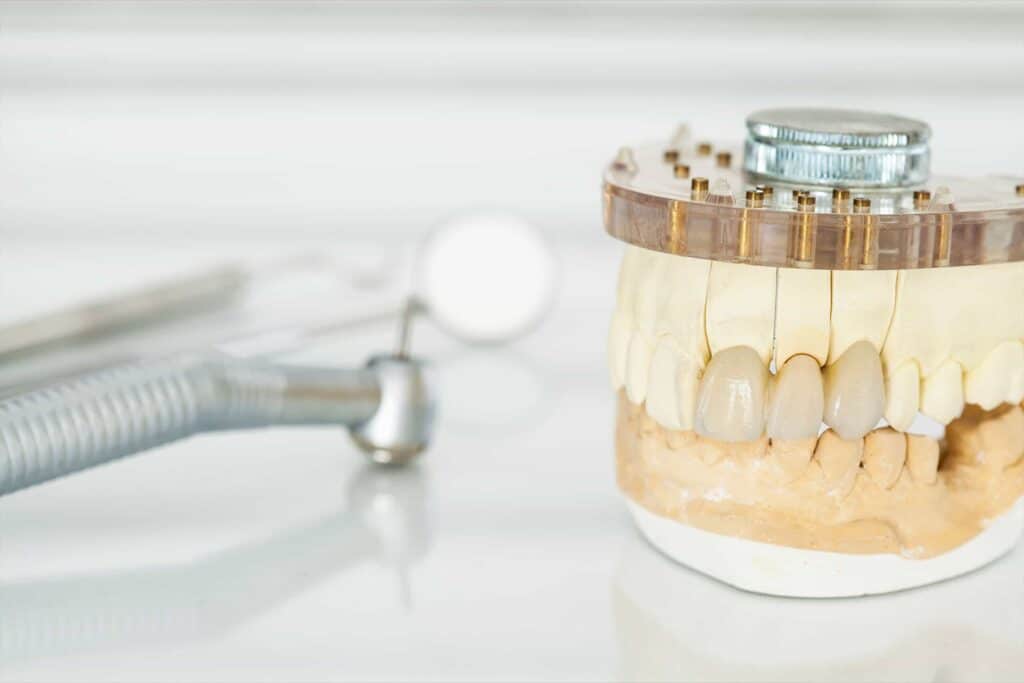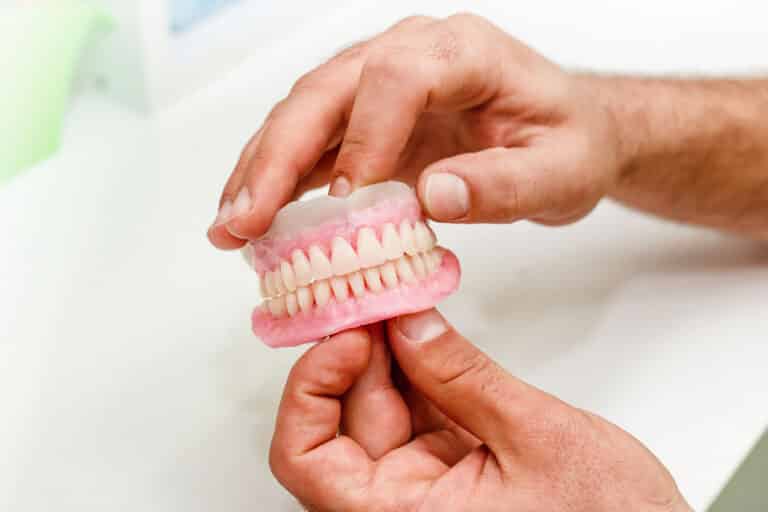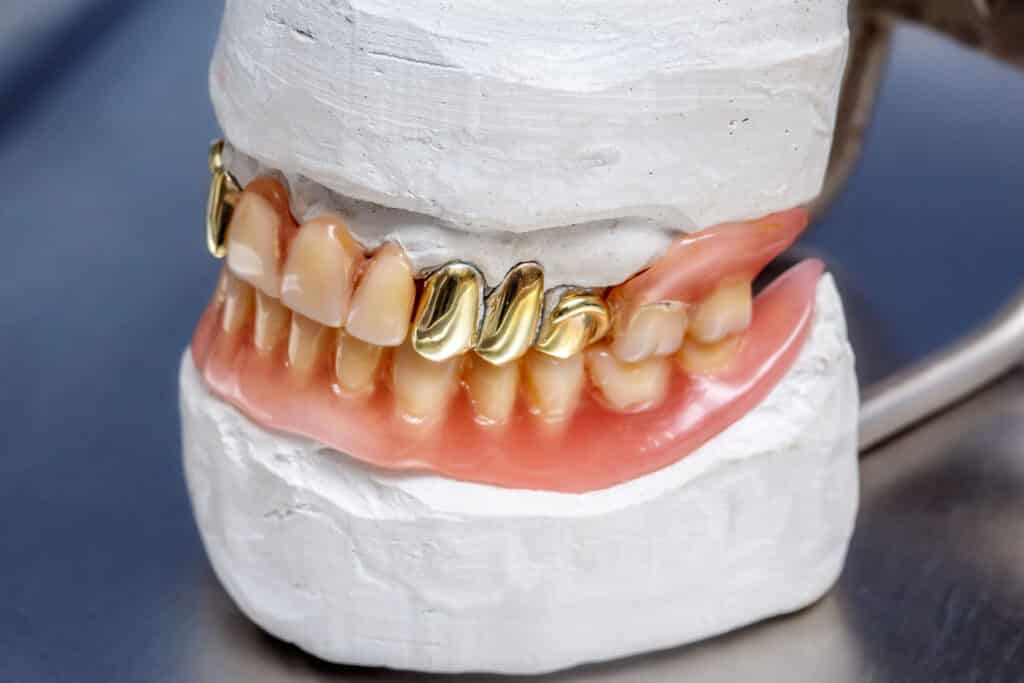A tooth infection can be an excruciating experience, depending on how long it’s been forming. However, it’s not always possible to confirm, using a self-diagnosis, if it has taken root or if something else entirely is happening.
The dentist is the first person to call for a suspected tooth infection, but sometimes, the wait is much longer than you’d like! While waiting to see a dentist, various factors help patients distinguish it from other painful dental issues.
What is a Tooth Infection?
A tooth infection, also known as a tooth abscess, is a collection of bacteria and pus underneath the gum or inside the jawbone. Some tooth infections are straightforward to treat and resolve after starting a round of antibiotics, possibly drain any infection, then remove the source of the infection with a root canal or extraction. However, it’s common for dental or tooth infections to require a serious resolution, if there is a lot of destruction of bone.
There are more than one type of tooth infection. Endodontic infections happen within the bone near the root, while periodontal infections can happen under the gums. Both types of infections typically involve the jawbone in some form, and both are painful.
How Do You Get a Tooth Infection?
Our mouths are full of bacteria from food, plaque, and saliva. Occasionally, this bacteria enters a tooth or space below the gum line and forms an abscess, but this rarely happens with healthy teeth The most common form of entry is through a cavity that gets to the nerve, or a carious lesion.
Though it may go unnoticed initially, they’re typically quite painful once the abscess begins to grow. Most people will know that something is wrong with the infected tooth, as with symptoms such as bite and extreme cold sensitivity, swelling and severe pain.It’s crucial to have a dentist look at a suspected tooth infection as soon as possible.
Can a Tooth Infection Make You Sick?
Depending on the severity of the infection, yes, a tooth infection can make a person sick, ranging from feeling just a bit off to death. The range of symptoms is vast, which is why professional intervention is recommended immediately. While it’s rare for a it to spread through the body, it’s not uncommon for it to affect other parts of the face and mouth.
Some people may have swelling, making it difficult to eat or open and close their mouths. If an infected tooth is left untreated, it’s possible to develop a fever as the body attempts to rid itself of a persistent infection. There’s no doubt that dental infections can cause extreme pain, with most patients reporting at 8 out of 10 on the pain scale. This pain level can make going about your day anything extremely difficult, from the activities in your normal daily routine to sleeping.
How Dangerous is a Tooth Infection?
A tooth infection can be hazardous if left unattended for too long.In most cases, an infection means that the nerve in the tooth is dead, or partially dead.
While tooth infections are rarely deadly, they can cause sepsis if left untreated long enough, which will require ICU care or, in extreme cases, death. A toothache that won’t subside is a reason for a dental visit, as it could be the beginnings of a painful tooth infection.
A good rule of thumb is the longer a tooth infection goes untreated; the more involved the actual treatment will be. Don’t ignore tooth pain, as a cavity that goes untreated can lead to costly care and a deeper infection level.
What Kind of Pain is Common with a Tooth Infection?
The most common pain associated with a tooth abscess is a low, radiating pain that often spreads to the jawbone, neck, and ear on the same side as the affected tooth. Sufferers may also experience sensitivity to hot and cold temperatures and chewing or biting.
Tooth infection pain may also be intense and throbbing, beginning seemingly out of nowhere and increasing over time. The ache from an abscessed tooth may also worsen when lying down, making it difficult to sleep.
Why do Infections Hurt?
In most cases, inflammation causes the pain that we experience alongside infections. The presence of inflammation triggers sensory nerves, causing a hyperalgesic response. Hyperalgesia is a painful response to normally non-painful stimuli such as gentle pressure. The mouth can be super sensitive in this respect, so tooth infections are notorious for their painful qualities, with many people reporting high levels of 8 on a pain scale of 10. Additionally acute infections can cause distention of tissues, which can also be incredibly painful.
How Long Can a Tooth Infection Go Untreated?
The best practice is to seek treatment as soon as a tooth infection is suspected. Most people make an appointment or head into an emergency center for treatment because the pain can be intense, but in some cases, treatment is delayed. By intentionally delaying treatment, an injection can get worse and potentially life threatening.
How long it can remain untreated depends on how nasty the infection is, but the best practice is to make an appointment at the first sign of pain.
When Should I See a Dentist?
Seeing a dentist as soon as possible is the best way to mitigate the potential effects of an untreated abscessed tooth. In fact, seeing your dentist ASAP, at the first sign of noted pain or infection, can better the outcome for you. Early diagnosis is key. Tooth infections are difficult to ignore and may cause loss of teeth and other extreme medical conditions.
How do I Heal a Tooth Infection?
It’s important to note that a tooth infection will not go away on its own. While it may cause severe damage to the gums and bone surrounding your tooth, which could kill the nerve and lessen the pain as a result, the infection itself is not gone. Properly healing a it requires professional and immediate dental care, as removal of the actual source of infection is necessary. This removal will involve taking out the remnants of nerve tissue or the tooth itself.
Home Remedies to Relieve the Pain and Swelling?
There’s no reason to sit in excruciating pain while waiting for a dental appointment. To relieve the pain and swelling of a tooth infection at home, you could try the following home remedies:
- Saltwater rinse
- Hot peppermint tea bags on the affected area
- Cold compress
- Hydrogen peroxide rinse
- Garlic paste applied to the aching tooth
- Over-the-counter pain medication
What Will a Dentist Recommend to Fix My Infection?
Professional dental recommendations will depend on the stage and severity of the tooth infection. You’ll likely find that your treatment is a combination of the following options::
- Antibiotics
- Drainage
- Root Canal
- Tooth extraction
Additionally how you’re feeling may change the treatment. For instance, you may request to have the tooth extracted due to extreme pain even though the tooth is savable with a root canal.
What are the Most Common Symptoms of a Tooth Infection?
Symptoms for most ailments look different for everyone. However, when it comes to a tooth infection, expect the following symptoms:
- Pain when eating
- Discolored tooth
- Cavity
- Swollen lymph nodes under the jaw
- Pain in the jaw, neck, and ear of the affected side
- Sensitivity to hot and cold temperatures
- Swollen gum filled with pus
- Fever
- Difficulty chewing
- Spontaneous tooth pain
How Will I Know If It’s a Tooth Infection or Something Else?
At the first sign of tooth pain, it’s essential to schedule an appointment with a dentist. While a suspected tooth infection could very well be something else, eliminating possible infection is the first step, and a proper diagnosis is required before treatment begins.
If the symptoms mentioned above are present,seek medical treatment. Remember, it could be a different ailment entirely, but it’s too dangerous to put off treatment for a potential tooth abscess.
There is no harm in seeking emergency care if your dentist cannot fit you in right away. You know your body better than anyone, and will be able to identify when something is amiss. Seeking immediate treatment makes a bit of room for a better prognosis overall.





